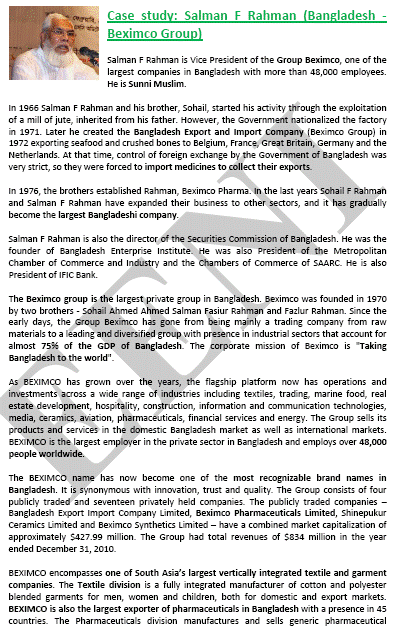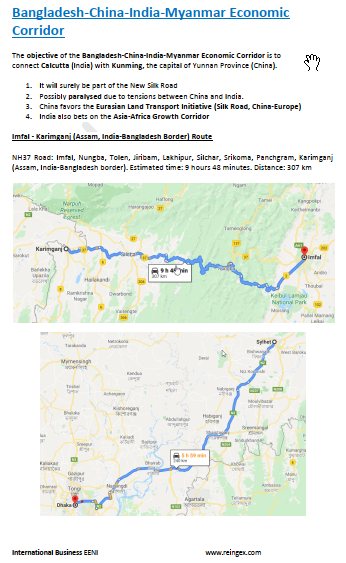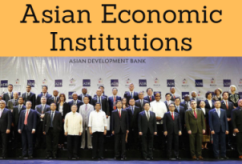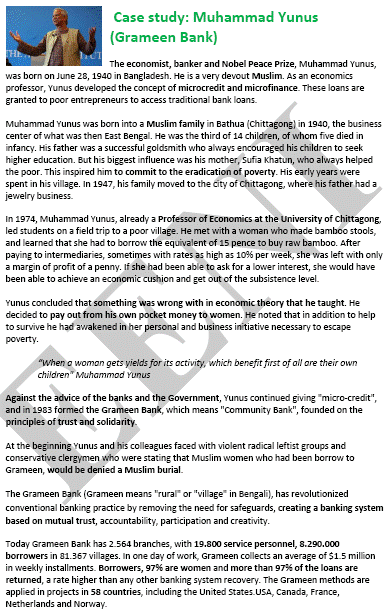Business in Bangladesh, Dhaka, Chittagong
Bangladeshi Economy, Logistics and Foreign Trade, garments, electronics. Muhammad Yunus
Bangladesh (Asia) is advantageously situated near to India, China, and ASEAN markets.
The efficiency of the industrial sector in Bangladesh was principally based on the growth in textile and wearing apparel, petroleum products, drugs and pharmaceuticals, fertilizer, footwear, glass products, cement, electronics, and food and beverage industries
- The Services sector is the largest contributor to the real GDP of Bangladesh
- Agriculture in Bangladesh still holds an important position in their economy
- Introduction to the People's Republic of Bangladesh
- Bangladeshi Economy
- International Trade of Bangladesh
- Investment in Bangladesh
- Doing Business in Dhaka and Chittagong
- Business Opportunities in Bangladesh
- Agribusiness
- Electronics
- Information and communications technology (ICT)
- Business Services
- Garments and textiles sector
- Transport and Logistics
- Enterprises in Bangladesh:
- Desh Group (Textile)
- Walton Group (Bangladeshi business conglomerate)
- Case Study: U.S. and Bangladesh – Textiles vs. Aircraft
- Access to the Bangladeshi market
- Business Plan for Bangladesh
- Muhammad Yunus (Grameen Bank)
- Mohammad Abdul Mannan
- Salman F Rahman (Beximco Group)
- Jahirul Islam (AFTAB Group)
- Samson H Chowdhury (Square)
Sample - Salman F Rahman


The educational aims of the Subject “Foreign Trade, Logistics and Business in Bangladesh” are:
- To analyze the Bangladeshi Economy, Logistics and Foreign Trade
- To conduct research on business opportunities in Bangladesh
- To explore the Bangladeshi trade relations with the student's country
- To learn about Bangladeshi Trade Agreements
- To examine the profile of Bangladeshi businesspeople and companies
- To develop a business plan for the Bangladeshi market

The Subject “Foreign Trade, Logistics and Business in Bangladesh” is included within the curriculum of the following academic programs at EENI Global Business School:
Masters: International Business, Foreign Trade.


 Higher Education programs adapted to the Bangladeshi Students.
Higher Education programs adapted to the Bangladeshi Students.
Languages:  or
or  Bangladesh
Bangladesh  Bangladesh.
Bangladesh.
- Subject Credits “Doing Business in Bangladesh”: 2

International Trade, Logistics and Business in Bangladesh.

- Bangladesh-Myanmar Logistics Corridor
- Access to the Islamabad-Tehran-Istanbul Rail and Road Corridor (ITI-ECO)


Preferential Access and Trade Agreements of Bangladesh
- Bangladesh and the Central Eurasian Economic Area
- Trade Agreements with Pakistan, Sri Lanka, India, Bhutan, Nepal
- Asia-Pacific Trade Agreement
- South Asian Association for Regional Cooperation
- Bay of Bengal Initiative
- Asian Clearing Union
- South Asia Economic Cooperation (SASEC)
- Indian-Ocean Rim Association
- Trade Preferential System (TPS-OIC)
- Islamic Centre for Development of Trade
- Global System of Trade Preferences
- GSP
- Trade Negotiations Among Developing Countries

- World Trade Organization (WTO)
- Agreement on Trade in Services (GATS)
- Agreement on the Application of Sanitary Measures
- Agreement on Technical Barriers to Trade
- Agreement on Preshipment Inspection
- Agreement on Safeguards
- Trade Facilitation Agreement
- World Customs Organization (WCO)
- Kyoto Convention (Containers)
- BIC (Containers)
- Chicago Convention (ICAO)
- International Maritime Organization (IMO)

- Islamic Development Bank
- OIC Asia-Middle East Dialogue (AMED)

- Boao Forum for Asia
- Asia Cooperation Dialogue
- Economic Commission for Asia (ESCAP)
- Asian Development Bank
- Colombo Plan
- Africa-Asia Partnership

- United Nations
- World Bank
- World Trade Organization (WTO)
- International Monetary Fund
- The People's Republic of Bangladesh is one of the most densely populated countries in the World (167 million)
- Borders of Bangladesh: Bharat (India) and Myanmar
- 98% of the population speak Bangla language (official language)
- The capital of Bangladesh is Dhaka (7 million inhabitants)
- Area of Bangladesh: 147,570 km²
- Government type: Bangladesh is a Parliamentary Republic
- Independence of Bangladesh from Pakistan in 1971 (previously it was part of India)
Main religion in Bangladesh: Islam.
- Islam is the largest religion in Bangladesh; the Muslim population is about 149 million people (90% of total population), the fourth-largest Muslim population in the World (after Indonesia, Pakistan, and India)
- Bangladesh is a country with a Sunni Muslim majority, mainly follow the Hanafi school of jurisprudence
- Hindus (15 million, 9% of the population)
- Christians (1 million)
Bangladesh belongs to the Central Eurasian Economic Area (Islamic Civilization).
Economy of Bangladesh.
- The Annual market size for information technology (computer hardware, peripherals, and software): 25 million dollars
- Currency of Bangladesh: Taka (BDT)
Sample - Muhammad Yunus (Bangladesh)

Desh Garments was the first export-oriented ready-made garment industry in Bangladesh. It was set-up in a Joint Venture with Daewoo (South Korea). Desh was the single largest and the most modern garment manufacturing unit in the sub-continent.
Walton HIL is the pioneer of Refrigerator, Freezer, Air Conditioner and Motorcycle Manufacturing Technology in Bangladesh.

International Trade of Bangladesh.
- Textiles and clothing industry is the largest export segment of Bangladesh. Their factories design and produce for leading Brands and retailers - Distributors in the World
- Main exports of Bangladesh are ready-made garments, frozen foods (shrimps), leather, leather Products, jute, jute products, tea, ceramic, textile fabrics, home textile, chemical product, light engineering products (bicycle)
- The largest trade partners of Bangladesh are Bhutan, Maldives, Nepal, Pakistan, and Sri Lanka
- Export Processing Zones are export-oriented industrial areas, which supply: infrastructures, facilities, administrative and assistance services
- Established under the Investment Board Act 1989, the Board of Investment is the leading private investment promotion and Trade Facilitation agency of Bangladesh
Bangladeshi Trade Agreements.
As the South Asian Free Trade Area (SAFTA) comes into force, the foreign investors in Bangladesh will benefit from duty-free access to the Indian market and other SAFTA member countries (Afghanistan, Bhutan, Maldives, Nepal, Pakistan, and Sri Lanka).
Bangladesh started bilaterally negotiations to form Trade Agreements with India, Pakistan, and Sri Lanka and recently, a trade and investment framework agreement with the United States is also under active consideration. Bangladesh is a beneficiary of EU Generalized System of Preferences (GSP).
(c) EENI Global Business School (1995-2025)
Top of this page








 WhatsApp
WhatsApp